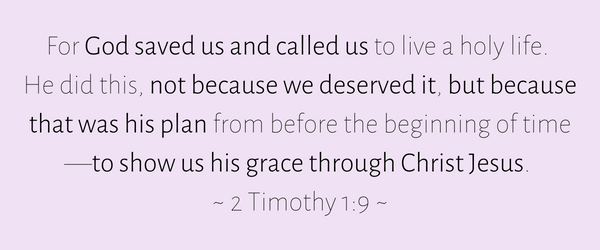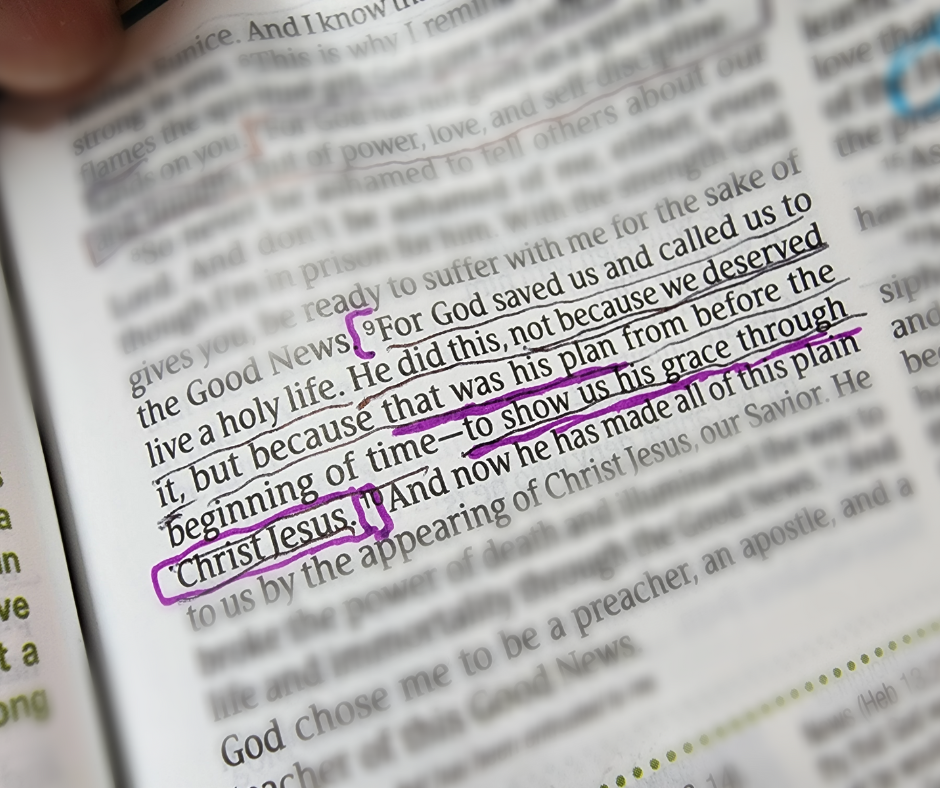Paul was so frustrated with the Corinthians. He loved them, of course; but, when it came to their focus on the Gospel of Jesus, they were definitely missing the mark.
The Bible contains sixty-six books, and these books are filled with words – stories, laws, customs, traditions, miracles, people… Honestly, trying to understand the point of it all can make a reader feel quite overwhelmed.
What is the Gospel of Jesus? What is this “Good News” that Christians are talking about?… And, what is it not?… With so many books, and so many words, missing the main focus of it all is bound to happen sometimes, like…
… that time the Corinthians were missing the point.

The apostle Paul’s letters to the 1st century church of Corinth (i.e. what most of us call the “books” of 1st and 2nd Corinthians) were quite lengthy. And, in fact, scholars actually think there was a third letter, which has yet to be found. They were lengthy because the church in Corinth was a pretty big mess. In the first letter alone, the apostle addresses poor leadership, a case of incest, multiple lawsuits, numerous jealousies and quarrels amongst believers, idolatry, spiritual abuse… and more.
The church in Corinth seems to be focused on a whole lotta stuff… that ain’t the gospel of Jesus. So, Paul reminds them.
He reminds them of what all believers need to be reminded of from time to time.
The Gospel of Jesus is not a bunch of rules… or traditions… or stuff.
The congregation in Corinth got sidetracked.
They started focusing on:
- which preachers were their favorites (1 Corinthians 3:1–11)
- winning justice for themselves in the secular world (1 Corinthians 6:1-11)
- who should wear this or that (1 Corinthians 11:1-16)
- what kind of food to eat, and when it’s okay to eat it (1 Corinthians 8:1-13)
- how to organize the taking of the Lord’s Supper, causing divisions and cliques among them (1 Corinthians 11:17-34)
And the list… goes… on.
Paul offers wisdom and feedback in these areas; but, as he reminds them over and over in his letters, none of this is the Gospel of Jesus Christ… nor is any of it the point.
Do we see ourselves in the believers of Corinth?
As believers, do we fall prey to the same issues and distractions to the Gospel that the Corinthians struggled with long ago?
We know the Gospel. We believe the Gospel. Yes, it’s about Jesus – he lived, he died, he rose again… but then, all this stuff comes up.
Life happens. Situations happen at work. Conflicts happen in our family. Disagreements happen in our church. Health problems arise. Parenting quandaries surface.
And, we get… sidetracked.
We lose sight of the Gospel.
Its message.
Its simplicity.
Its power.
The Gospel is not a bunch of rules… or traditions… or stuff.
It’s not… adhere to this denomination.
It’s not… don’t sin in this particular kind of way.
It’s not… hold this particular political view.
It’s not… don’t struggle in any area of life.
Nope… it’s not that.
The Gospel of Jesus is not the belief that Jesus existed.
When people in the first century received these letters from Paul, the life of Jesus was not up for debate. Indeed, there were, perhaps, people in the Corinthian church that had seen Jesus with their very own eyes, as he walked on the earth years before. In the least, they knew Paul, and had met other apostles, who had spent their earlier lives following him.
However, today, 2000ish years removed from this piece of history, there are those who would argue that this particular guy, Jesus, may not have existed at all.
Let’s talk about that…
Speaking from a secular point of view, whether or not there even existed this particular man named Jesus is up for debate only if you do no research at all.
It would be like me saying, “You know what? I have decided that I do not believe in the American Revolution. I wasn’t there. I didn’t see it happen. I will not be convinced. It’s all a hoax.” Now, I’m no American history buff, but I am smarter than that… However, if I were to take that stand and begin any type of research on the topic, I would quickly be humbled by the breadth of recorded history on the subject and realize I was wrong.
In the same way, there is no disagreement about whether or not there was a man named Jesus.
There was this man named Jesus.
He lived at the beginning of the first century.
He caused a great ruckus.
He claimed to be the Son of God (and lots of people claimed that about him, too).
He was recorded to have done many miraculous things.
He was arrested.
He was executed by crucifixion.
None of this is up for debate.
Any person who is open to historical research will find multiple sources from Jewish and Roman historians, apart from biblical accounts, concerning the history of this man, Jesus.
For instance… there was a man named Josephus, a Jewish historian and military leader in Palestine, who would write about the unlawful execution of a man named James. Josephus wrote that this man was “the brother of Jesus who is called the Messiah”. Josephus would later go on to describe this man, Jesus, “who did surprising deeds” and was condemned to be crucified.
For another instance… there was a Roman historian and senator, named Tacitus, who wrote about this man, Jesus. About how he was executed by the governor of Judea, Pontius Pilate, for crimes against the state, and a religious movement of his followers sprang up after his death.


Now, some skeptics may say that Josephus and Tacitus were just “propagating the Christian agenda, like the Gospel writers were long ago”. However, neither Josephus nor Tacitus ever claimed a conversion to Christianity. They were simply writing facts, as historians do.
The fact that Jesus existed… that he lived… is not up for debate. The belief that Jesus existed, that he lived on this earth long ago, is not the Gospel. Most any person should believe that.
Nope… it’s not that.
The Gospel of Jesus is not a tool for ‘self-help’.
In an article entitled “Jesus Died – And Then What Happened?”, published in the New York Times on April 3rd, 1988, numerous clergy over the course of several years were asked, “How many times each year do you preach on any of the ‘resurrection texts’ in scripture?” In essence, how many times a year does a pastor’s message revolve around Jesus being raised from the dead?
This reporter said that the answer was invariably the same. “Once.” One Sunday out of fifty-two… Bet you can guess which Sunday it is. #Easter
Why might this be?
Perhaps clergy (and I take personal ownership in this, since I am one) have not done a good job of focusing on the point of the Gospel. Perhaps we have become sidetracked, believing in the Gospel; and yet, seeking the power of the Gospel – the salvation it promises and the freedom it provides – in ideas that are far less than the power of a God that raised a human from the dead.
Perhaps Christianity has skewed away from the Gospel not on purpose, but because it is the temptation of humanity (from the very beginning) to place our hope, and our lives, in the hands of:
A self-help book.
A political leader.
A social justice or cause.
A marriage counselor.
A paycheck.
A relationship.
A job.

And, perhaps, due to these things in life, we begin to approach the scriptures… the Bible… the Gospel… as simply one-of-many guides for ‘self-help’.
Looking to Jesus, looking to the Bible, as a means to self-help is not the Gospel. The Gospel is not about whether or not we figure out the “right way” to live our lives.
Nope… it’s not that.
The Gospel is this…
It is JESUS. … Not just his life. Not just his death. It is the resurrection of his life, the conquering of death, and the power of the God that can make any dead thing come back to life.

It is … Jesus Christ and him crucified. (1 Corinthians 2:2)
It is … that Christ died for our sins according to the Scriptures, that he was buried, that he was raised on the third day according to the Scriptures… (1 Corinthians 15:3-4)
It is … just as Christ was raised from the dead through the glory of the Father, we too may live a new life. (Romans 6:4)
It is … for God so loved the world that he gave his one and only Son, that whoever believes in him will not perish but have eternal life. (John 3:16)
The Gospel is this: If you declare with your mouth, “Jesus is Lord,” and believe in your heart that God raised him from the dead, you will be saved. (Romans 10:9)
This is the Gospel that forgives us.
This is the Gospel that redeems us.
This is the Gospel that transforms us.
This is the Gospel that saves us.
We all have a little bit of the Corinthian church in us. We get sidetracked & distracted. We lose our focus and miss the mark. We forget the point of it all. But…
We have to stop adding stuff to the Gospel. Salvation is in nothing else and in no other name.
What is the Gospel?… The Gospel is Him.
So… May we keep the main point the main point.
May we, when getting sidetracked, remind ourselves of the Gospel’s message… the Gospel’s simplicity… and the Gospel’s power.
May we focus our eyes on Jesus, the one who not only lived and died, but the One who rose from the dead.
Written by Danielle Walker

For more on Jesus’s resurrection, watch Jesus Died… And Then What Happened
Plus, be a part of our newsletter and get our FREE 7-Day Devotional! Sign up below!


[…] Check out this video’s blog: The Gospel of Jesus: Three Reminders to the Corinthians […]